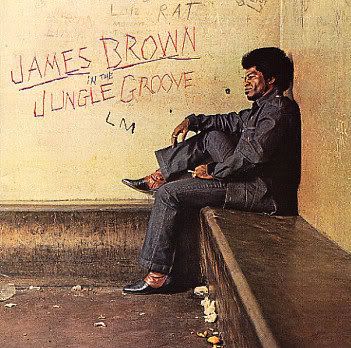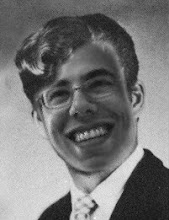Not that I ever do this, but considering the Grammies were last night, today I suddenly got an inkling to poke my head into the bizarre world that we call "popular music." I haven't paid any attention to the "chart-toppers" and "hit singles" in many, many years. Probably since the late 90s, when that horrible swarm of boy-bands descended upon and destroyed what was left of MTV, which was already on its death-bed by then.
So today I checked out the Billboard Hot 100 list, and with mild surprise, discovered that it is Kelly Clarkson who currently tops out the charts at #1 with her touching love song, beautifully titled,
"My Life Would Suck Without You." Imagine Casey Kasem introducing that. Jesus fucking Christ.
But I suppose that there always has been and always will be musical drivel to feed to the masses. And if there has been one constant in the history of rock and roll over the past fifty years that has never gone out of style, it has been the universal appeal of the love song. (This does go back much further, to Tin Pan Alley and Sinatra and the crooners, but Rock is our main lexicon here.) From Elvis'
"I Love You Because" in 1955 to "My Life Would Suck Without You," there has always been room for another pop nugget love song to give the world, regardless if it's a lovely gem, or a polished turd.
Given that most popular love songs are disposable fluff, there is no denying that it is not easy to write a love song that's simultaneously loved by millions and respected as actually having substance, as a form of art. Phil Spector was very good at this in the early 60's, and don't even get me started with soul music and Motown. But there is no denying that there really only has been one band to succeed in making high art out of love songs so often, and at such a consistently high level – obviously,
The Beatles.

They were so good for so many reasons, and good love songs were really at the core of it all, especially at the beginning. One after another, they kept pumping these vital tracks out, and out of all those amazing love songs, only the occasional McCartney song came across as sappy in any way ("Michelle").
By '67 or so, once they had accepted their positions on the high throne of youth culture, The Beatles had assumed and embraced their roles as troubadours of Love. Their love songs had progressively gotten more and more complex through the
Rubber Soul and
Revolver albums, saying smart things about ambiguity, pleasure and guilt that had never been done in pop music at the time. They had mastered the craft of writing meaningful love songs, and were at the top of their game. Then Lennon went ahead and took it to a whole other level, summing it ALL up with the universal
"All You Need is Love," which was premiered to the world in the first-ever global satellite television broadcast. Soon after, he realized he couldn't really take it any further than that. It seems to me that that song was essentially the climax of the Lennon-McCartney love song era, and they mostly dropped off the love theme after that. The best Beatles love songs post-
Revolver were George songs, as he seems to have taken the torch from John and Paul while they explored other aspects of songwriting. Case in point:
"Something." This is perhaps the best love song EVER, in the history of all songs. Frank Sinatra himself is known to have said that “Something” is his favorite Lennon-McCartney song.
Then The Beatles broke up. But the love songs continued, and at a pretty consistent quality. John, Paul and George have all contributed their fair share of lovely little ditties of love post-Beatles, though Paul has been guilty the most often of slipping into saccharine, sickly-sweet ballads that suck. Of note is his garish ballad
"My Love," a Wings song that has to be the weakest, sappiest, poutiest puppy-dog-eyed McCartney ballad ever (way too many wubba wubs). This song reached #1 on the Billboard Hot 100 during June 1973. Fittingly enough, it was knocked out of the #1 spot at the end of June by George Harrison's far superior new single,
"Give Me Love (Give Me Peace on Earth)," which is a great forgotten track.
Perhaps in response to the bashing he got for the sucky "My Love," Paul came out a few years later with
"Silly Love Songs," with lyrics which pretty much sum it all up:
You'd think that people would have had enough of silly love songs.
But I look around me and I see it isn't so.
Some people wanna fill the world with silly love songs.
And what's wrong with that?
I'd like to know, 'cause here I go again
I love you, I love you,
I love you, I love you...Well spoken, Sir Paul. A good love song is a song for all people, everywhere. So I suppose that songs like "My Love," or "My Life Would Suck Without You" do bring lots of pleasure to many people, regardless of the fact that they really, really suck. They are evidence that there will always be another silly love song to add to the long list.
And now, a list of all the Beatles Love Songs, meaning, the best love songs ever written:All My Loving
All You Need Is Love
And I Love Her
Can't Buy Me Love
From Me To You
Hold Me Tight
I Feel Fine
I Wanna Be Your Man
I Wanna Hold Your Hand
I Want You (She's So Heavy) (love turned raunchy)
I'll Get You
It's Only Love
Love Me Do
Love You To (Harrison)
Lovely Rita
Michelle (my belle, mi amore...)
Please Please Me
PS I Love You
Real Love (actually a Lennon song before being overdubbed in the 90s)
She Loves You
Something (Harrison)
You've Got to Hide Your Love Away (Lennon's anti-love breakup song)
Post-Beatles Solo Career songs about Love:
Lennon:
Love (Plastic Ono Band)
Oh My Love
Nobody Loves You (When You're Down and Out) (written during his breakup with Yoko, when he became a depressed party-animal)
Woman
Every Man Has A Woman Who Loves Him
Dear Yoko
Grow Old With Me
Harrison:
I Dig Love
Give Me Love (Give Me Peace on Earth)
The Lord Loves the One (That Loves the Lord)
Māya Love
Ooh Baby (You Know That I Love You)
Can't Stop Thinking About You
Learning How to Love You
Love Comes to Everyone
Your Love Is Forever
Wake Up My Love
This is Love
And McCartney, the hopeless romantic. Sometimes pouty and too soft, but always catchy and melodic:
Maybe I'm Amazed (at the way you Love me all the time)
Love is Strange
My Love
One More Kiss
Love in Song
Silly Love Songs
Girlfriend (originally written with Michael Jackson in mind as the singer, MJ later covered it on Off the Wall)
Through Our Love
Only Love Remains
Don't Be Careless Love
Motor of Love
The Lovers That Never Were
Heather (Written for Heather Mills, the one-legged gold-digger)
Your Loving Flame

















